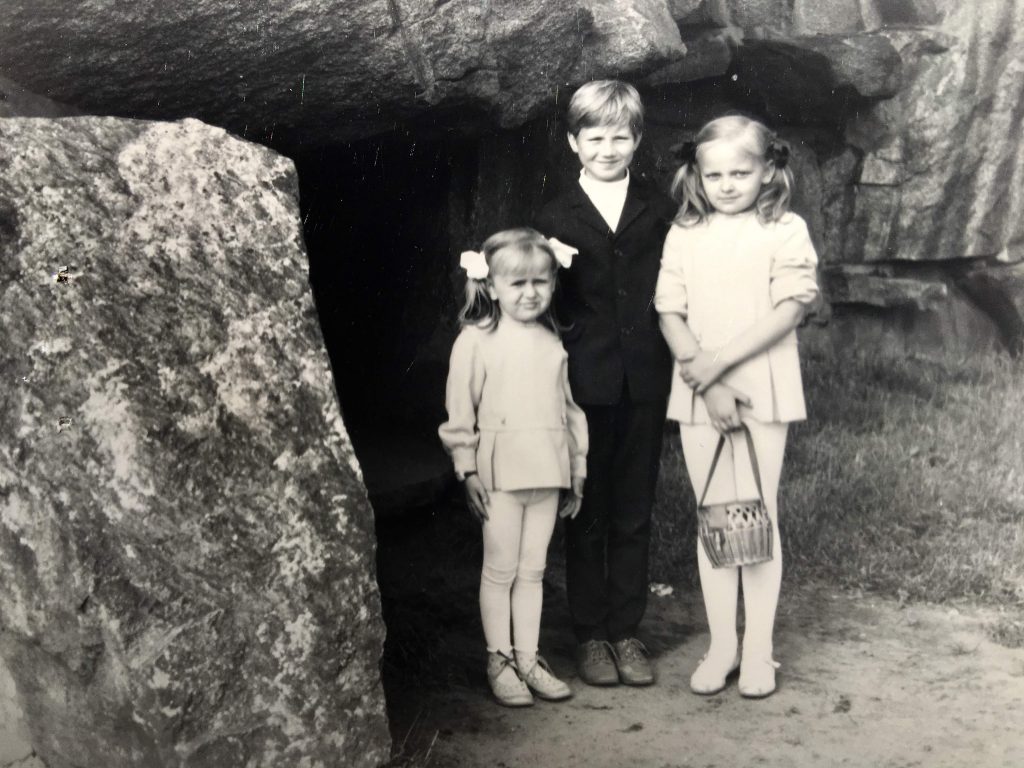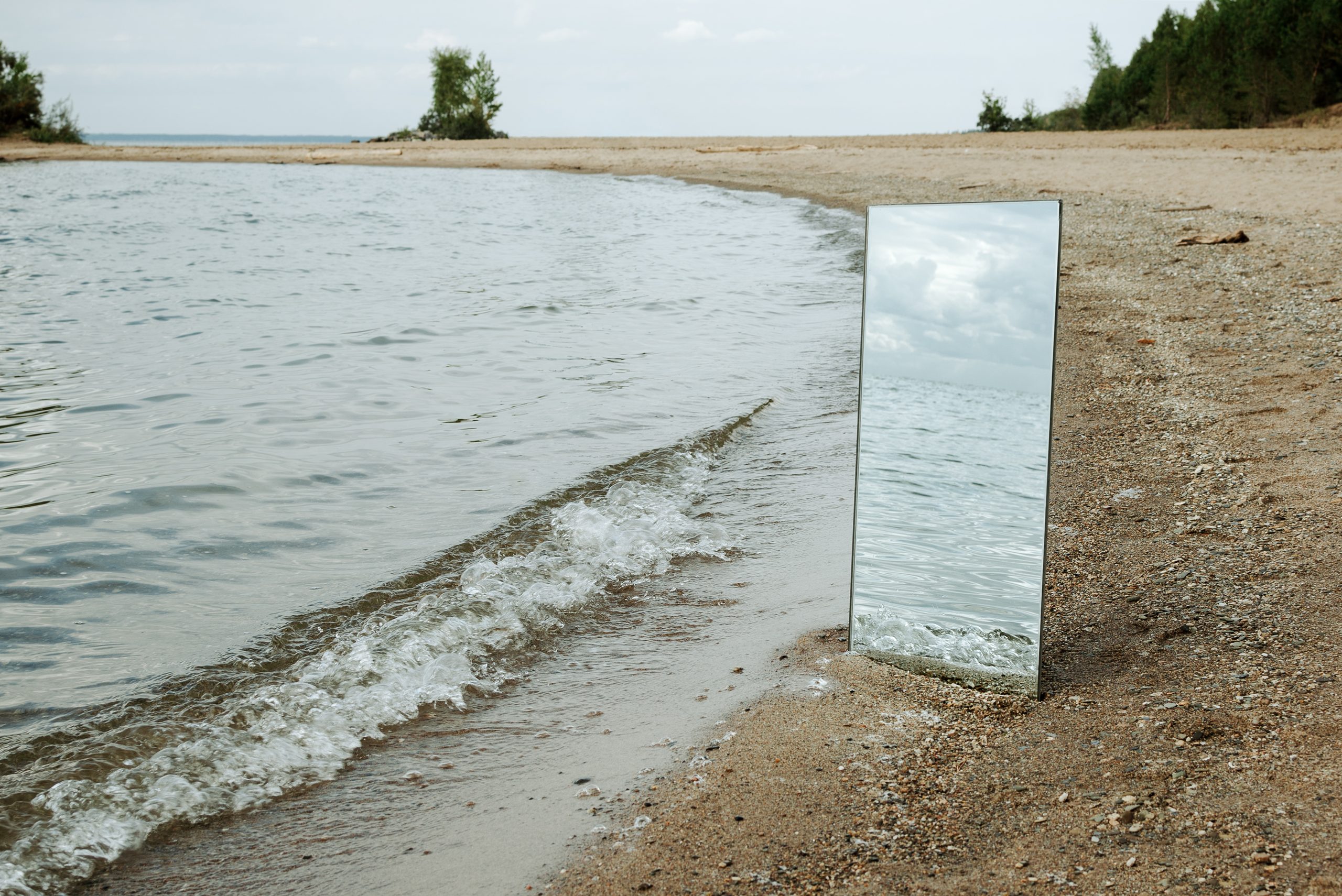History takes place in language before it manifests itself in events.

In first grade, at seven years of age, I started catechism classes like everyone else in my school. A part of me was excited about it, and a part of me was scared. Today I know that the part of me that was scared was precisely responsible for my excitement, kind of like when we watch horror movies.
Let’s start from the beginning. It happened in the 70s, in communist Poland. Catechism classes were held in a presbytery next to the Catholic Parish of the Assumption of the Blessed Virgin Mary, about two kilometers from the primary school my friends and I attended. Twice a week we marched there after school for a forty-five- minute catechism class. There were two ways to get to the presbytery. One cut through meadows along the Bolszewka River, another led along the main road that connected the metropolitan tri-city of Gdynia, Sopot and Gdańsk with East Berlin. Cutting through meadows was dangerous, because the river often overflowed the area, transforming it into marshes with pockets of water in tall grasses barely visible from the road. We quickly learned that entering the meadows while white storks were there, standing motionless on one leg with the other tucked under their bodies ready to jump, was strictly forbidden. The storks waited for frogs—their favorite meal— and that meant the water in the grasses was high.
More here: https://popula.com/2018/08/09/when-fake-news-was-good/


